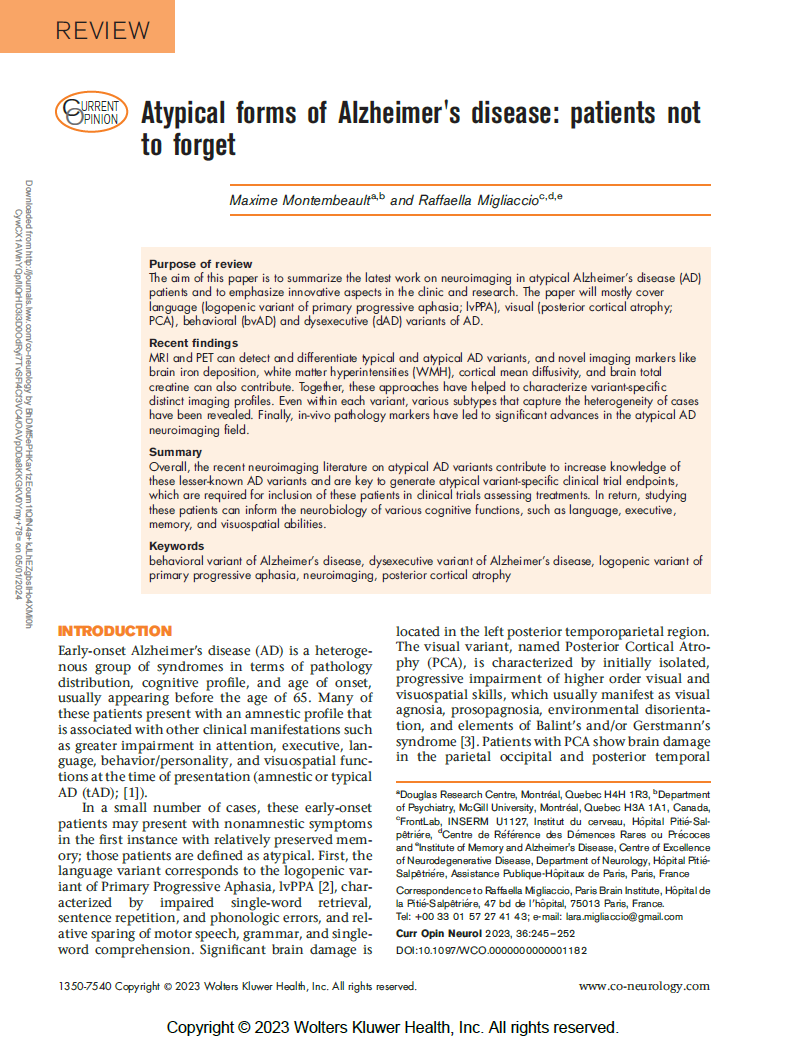Atypical forms of Alzheimer's disease: patients not to forget
August 2023
Abstract
Purpose of review
The aim of this paper is to summarize the latest work on neuroimaging in atypical Alzheimer's disease (AD) patients and to emphasize innovative aspects in the clinic and research. The paper will mostly cover language (logopenic variant of primary progressive aphasia; lvPPA), visual (posterior cortical atrophy; PCA), behavioral (bvAD) and dysexecutive (dAD) variants of AD.
Recent findings
MRI and PET can detect and differentiate typical and atypical AD variants, and novel imaging markers like brain iron deposition, white matter hyperintensities (WMH), cortical mean diffusivity, and brain total creatine can also contribute. Together, these approaches have helped to characterize variant-specific distinct imaging profiles. Even within each variant, various subtypes that capture the heterogeneity of cases have been revealed. Finally, in-vivo pathology markers have led to significant advances in the atypical AD neuroimaging field.
Summary
Overall, the recent neuroimaging literature on atypical AD variants contribute to increase knowledge of these lesser-known AD variants and are key to generate atypical variant-specific clinical trial endpoints, which are required for inclusion of these patients in clinical trials assessing treatments. In return, studying these patients can inform the neurobiology of various cognitive functions, such as language, executive, memory, and visuospatial abilities.

